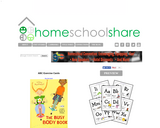
www.homeschoolshares.com offers a great free downloadable link to ABC exercise cards.
- Subject:
- Career and Technical Education
- Health Science
- Material Type:
- Diagram/Illustration
- Game
- Provider:
- Homeschool Shares
- Date Added:
- 04/22/2016

www.homeschoolshares.com offers a great free downloadable link to ABC exercise cards.
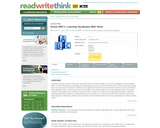
Many Kindergarten students come up with "action words" or verbs easily after demonstrating actions. Many of these emergent readers know more words thatn they use in daily writing/reading/sharing.
This lesson is easy to use in small groups and encourages them to broaden their vocabulary in a fun format, a personal Action ABC book. They can access and practice these new (and old) verbs easily and have unique collections they have designed!
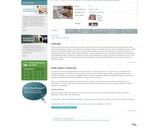
The activities in this lesson provide a foundation for using nonfiction resources for developing and answering questions about gathered information. Using a wide variety of nonfiction literature, students learn to sort and categorize books to begin the information-gathering process. Then, working with partners and groups, using pictures and text, students are guided through the process of gathering information, asking clarifying questions, and then enhancing the information with additional details. Students complete the lesson by collaboratively making “Question and Answer†books for the classroom library. This is a high-interest foundation builder for using nonfiction literature in research as well as for pleasure reading
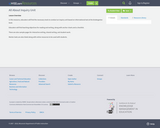
In this resource, educators will find the necessary tools to conduct an inquiry unit based on informational text at the kindergarten level.Educators will find teaching objectives for reading and writing, along with anchor charts and a checklist.There are also sample pages for interactive writing, shared writing, and student work.Mentor texts are also listed along with online resources to be used with students.
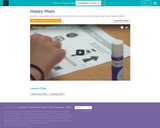
From Code.org:
"The bridge from algorithms to programming can be a short one if students understand the difference between planning out a sequence and encoding that sequence into the appropriate language. This activity will help students gain experience reading and writing in shorthand code."
Key words:
Algorithm
Debugging

The goal of the Listening and Learning Strand is for students to acquire language competence through listening, specifically building a rich vocabulary, and broad knowledge in history and science by being exposed to carefully selected, sequenced, and coherent read_alouds. The 9 units (or domains) provide lessons (including images and texts), as well as instructional objectives, core vocabulary, and assessment materials. The domain topics include: Nursery Rhymes and Fables; Five Senses; Stories; Plants; Farms; Kings and Queens; Seasons and Weather; Colonial Towns; and Taking Care of the Earth.
Find the rest of the EngageNY ELA resources at https://archive.org/details/engageny-ela-archive .
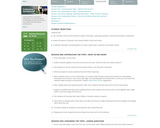
This mini unit walks students through the question/discovery process of nonfiction literature. The first lesson encourages students to wonder while reading. Then students research to find the answers to their questions. They explore ways to show/write their new learning. As a class the kids work to publish 1 or 2 classroom books on the research topic. This is a great way to introduce the nonfiction unit and then let each student write thier own question book based on the process they used with the class book.
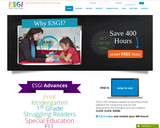
ESGI is a huge time saver for assessment! The website has over 200 pre-built assessment for all early learning benchmarks. Save time and trees- go digital! The company offers a 60 day free trial. No committment to get started.
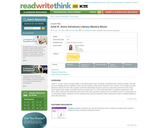
Junie B., as she insists on being called, is an opinionated, lively, character in Barbara Park's series of books, and she is sure to delight primary students. In this unit, the teacher reads aloud selections from Junie B., First Grader (at last!). Students discuss the text with a partner and then individually compose sentences about key events from the story. Each student also creates and adds items to a mystery box, or a box that holds items or pictures referenced in the story. After students have listened to the entire story, they use their mystery boxes to retell the story to a classmate. As a culminating activity, students use the mystery boxes and the sentences they composed to make a related stapleless book about the story.
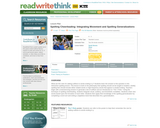
Students are able to make meaninful connections to vocabulary words by using word endings by creating their own word books to form new books.
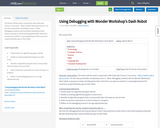
This lesson will be used in conjunction with Code.org's Course 1 Curriculum - https://studio.code.org/s/course1. For the class period after completing Lesson 5 - Maze: Debugging, students will use Wonder Workshop's Dash robots in groups to create and debug their Dash robot from one place to another in a preassigned part of the classroom using the Blockly app on their iPads.